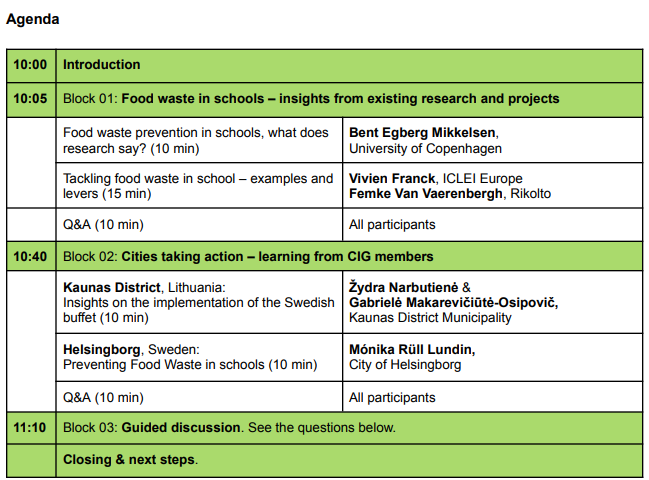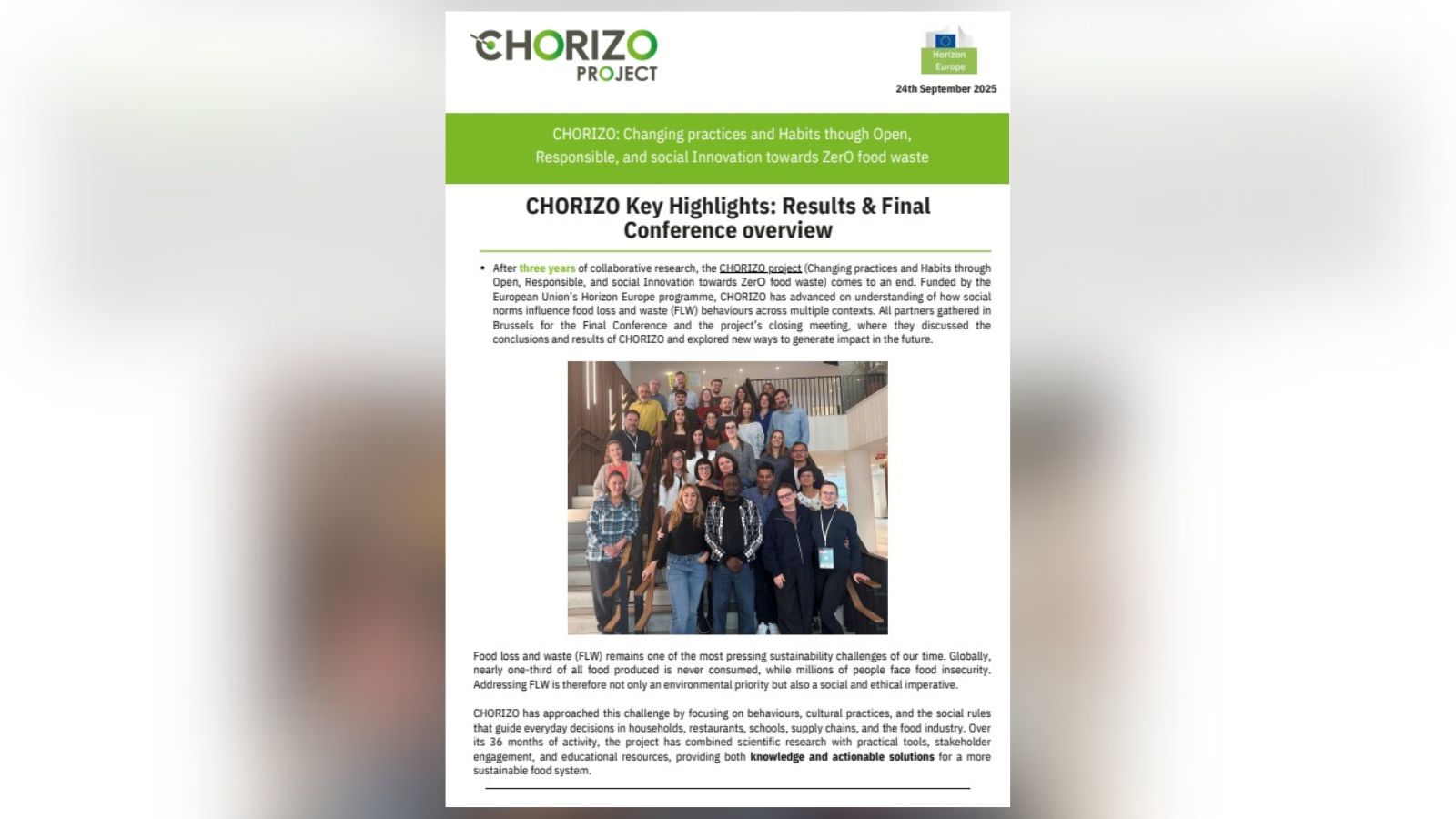Last Wednesday 12th of June, ICLEI hosted the fifth webinar of the City Interest Group (CIG) on Food Waste Prevention. The session explored the instruments that cities have at their disposal for preventing food waste in schools. The participants had the chance to examine successful practices implemented by cities and gain insights from academia and practitioners.
Food waste is an issue for school canteens. Beyond the most evident economic and environmental impacts, food waste in schools can also have negative nutritional and educational repercussions. Local and regional authorities have different statutory duties regarding meal provision and general school administration.
On the one hand most countries have school canteens where food is provided to pupils. These can take the form of buffet-style lunches, self-service or table service. Food can be cooked centrally and heated in different schools or cooked on site; it can finally be delivered by municipal staff or be outsourced to a catering company. On the other hand, in some countries, pupils eat packed lunches prepared by parents. More broadly, cities also possess statutory duties related to the environment, public health, education and/or waste management. All these competences constitute valuable leverage points for steering school food systems towards less food waste.
Besides the short-term impact of actions, schools prove to be the ideal place for educating future generations on the importance of sustainable meals from a young age. This can significantly impact household decision-making, as students bring their knowledge home, encouraging families to adopt more sustainable practices.

Coordinated by ICLEI – Local Governments for Sustainability as part of the EU-funded project CHORIZO, the City Interest Group on Food Waste Prevention brings together 12 cities across Europe, all committed to tackling food loss and waste. The group meets three times per year to learn from experts and exchange on best practices and challenges related to food waste prevention. They also share their perspectives as local practitioners on the project’s guidance documents and tools.
- The CIG will meet three times per year until October 2025.




